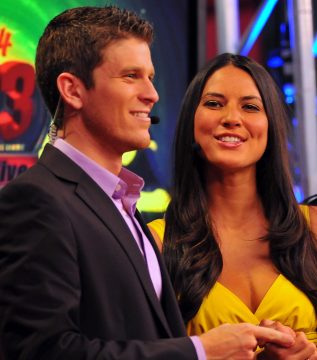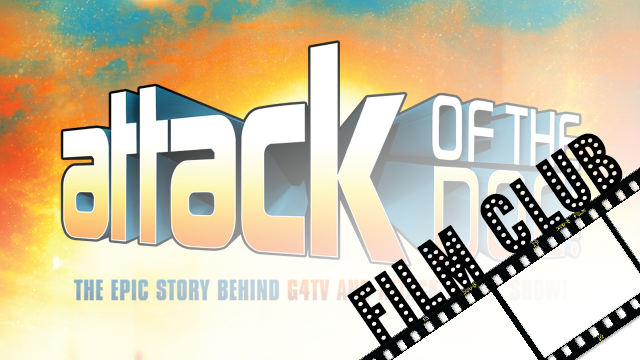Film Club is where we take a look at video game movies and TV shows and offer our impressions and insights. Part review, part reflection, Film Club is a great way to find something new to watch based on all of our favorite pastime.
2005 was a time before the interconnected world wide web of apps and devices that we live in today. Sure, plenty of folks were online by 2005, but at that point the Internet was in the nascent days of its transformation into a space filled with corporate-run websites and social media platforms. Outside of the nerdiest of nerds chatting on message boards, most people were talking about video games, comics, and movies in person. In 2005 I was a freshman in college and very much knee-deep in nerd culture. Brian Michael Bendis, Mark Millar, and Geoff Johns were reigniting the world of comic books with series like New Avengers, The Ultimates, and Green Lantern: Rebirth. Batman Begins and V for Vendetta, and were the “it” comic book movies of the day. And in the world of video games, Resident Evil 4, Forza, and Shadow of the Colossus were tops. Yet, outside of your friend group or maybe some fellow nerds at the local comic book shop, it wasn’t quite so common to see this stuff talked about in mainstream media.
Then, along came something called G4TV.
G4TV was a television network that did something no other broadcast company before it had ever truly bothered to do: it appealed to nerds. It entreated the nerd. It granted a level of respect and credibility to all of the things that nerds enjoy in a manner that had never really been seen before. “Nerd culture” is an everyday term now, but to associate “nerd” with “culture” back then was something of a head-turner. Yet, for so many people all of the things that define what it means to be a nerd very much felt like culture. The camaraderie forged by debating which comic book heroes would win a fight; sharing frustrations over a lack of faithfulness in movie adaptations; playfully arguing (and maybe sometimes less than playfully) over who cheated in a multiplayer video game. All of these shared experiences over popular culture was something that the nerds had known was a thing for decades, but it was finally time for the rest of the world to catch up.
The number one show on G4TV was Attack of the Show!, which featured hosts Kevin Pereira and Olivia Munn. It’s this era of the show that Chris Gore decided to focus on for his documentary Attack of the Doc! Gore, who had his own segments on Attack of the Show! during that time, felt inspired to chronicle the rise and eventual fall of the series and network. As Gore puts it, and as I tend to agree, Attack of the Show! ultimately served to legitimize what we now colloquially call nerd culture. In many respects, we’ve reached a point where it can sometimes feel like the pastimes of so many nerds has been a bit co-opted by the mainstream. As Gore points out in the documentary, it wasn’t all that long when being able to find anime and Star Wars t-shirts in a Target was virtually impossible; now, it’s as commonplace as milk and cheese in the refrigerated section.
It’s not to say that Attack of the Show! made all of this happen, but it was at the forefront of a perfect storm in pop culture in the mid to late-2000s. The Marvel cinematic universe was just coming to fruition, sparking a new generation of fans. The aforementioned burgeoning Internet and the rise of web-capable devices provided a means for fans to jack in and connect like never before. Comics at Marvel and DC were undergoing a renaissance. Video games were transitioning into the realm of interconnected, online play that paved the way for today’s eSports leagues and streaming sites like Twitch. It was a nexus point in time, certainly, but one that the folks at Attack of the Show! capitalized in ways that no one else did.

Attack of the Doc! does a wonderful job of capturing the zany energy of the mid-2000s. The humor, the antics, the unapologetic debauchery that was on display is all now a hallmark of a bygone era when people didn’t have to apologize every ten seconds for every slight, imagined or otherwise. People can debate all they want whether or not things were “better” back then, but there is an undeniable joy on the screen in every minute of Attack of the Doc! Although I wasn’t the biggest fan of Attack of the Show! when it was on the air, I still found myself drawn to the story unfolding on my screen of G4TV and its pioneering spirit.
Attack of the Doc! only comes up short in talking about the return of G4TV and Attack of the Show! The resurgence of the network was met with a lot of negativity when host Frosk went on an infamous on-air tirade against fans in what many considered to be an outright attack on the very viewers the network was trying to court. While I would have been fascinated to see more about the final act of G4TV, I can understand why Gore didn’t delve too deeply into it. After all, by the time G4TV “returned” it was really just a pale imitation of what came before. Why spend time lingering on the lowest point of the network when Attack of the Doc! is clearly meant to be a celebration, not a downer.
I strongly recommend giving Attack of the Doc! a watch. You can rent it online virtually anywhere streaming is available, and a Blu-ray will be coming in July for those who want a physical copy. Congrats to Gore and company for putting together a warm tribute to an unforgettable period in pop culture entertainment.




 ShareThis
ShareThis






